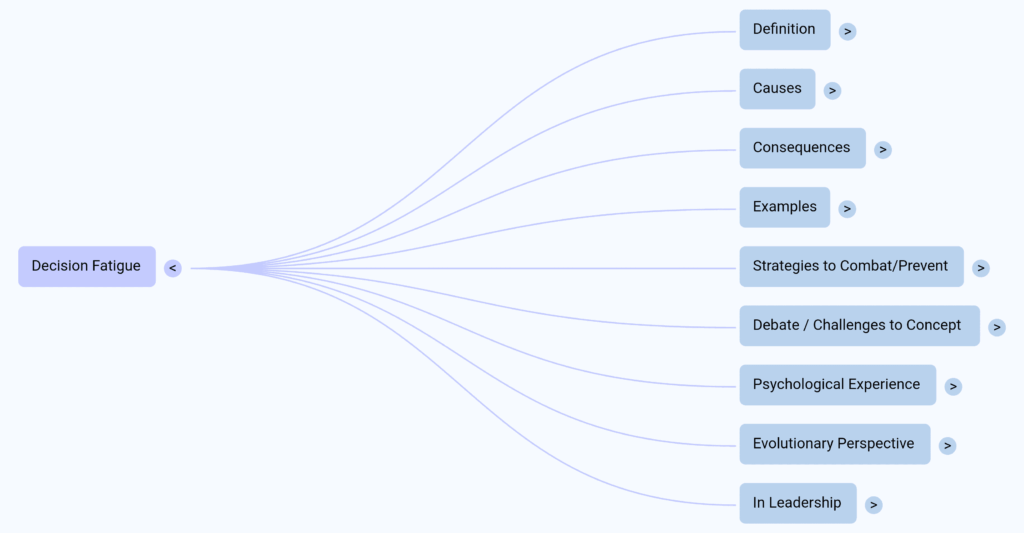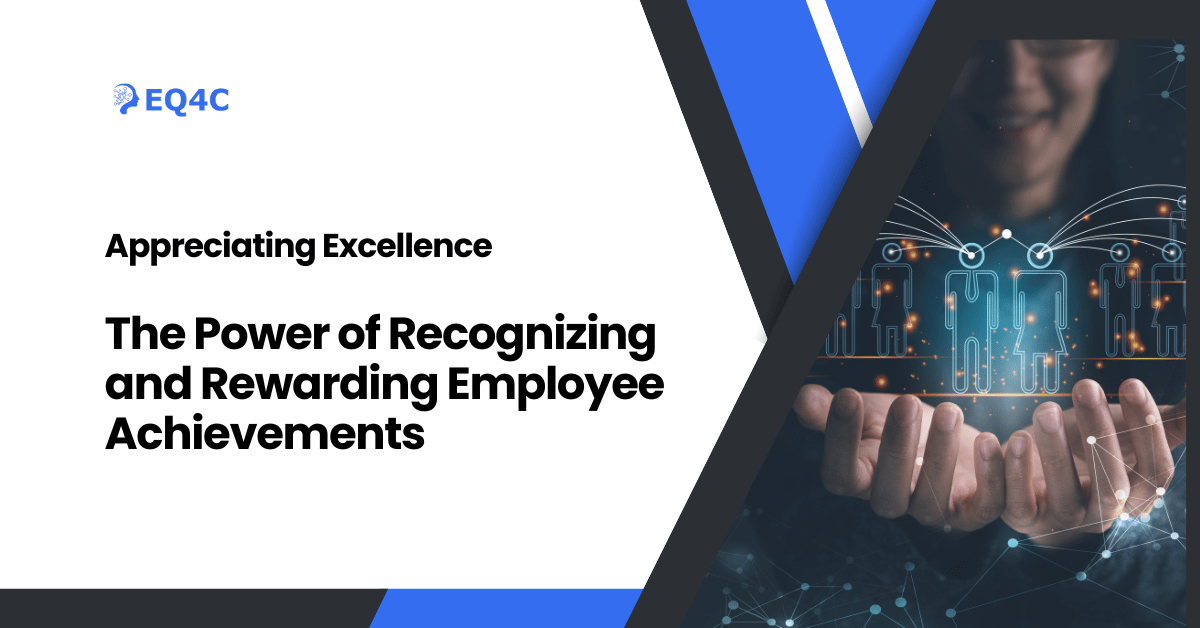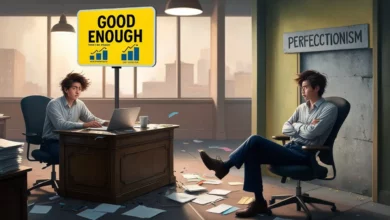Brain Drain: Why Constant Choices Are Exhausting You (And Your Team)
Navigate Decision Fatigue with Practical Strategies for Clearer Thinking and Stronger Leadership

Have you ever found yourself staring blankly at your sock drawer, completely unable to decide between the plain black ones and the slightly less plain grey ones? Like, it feels like the most monumental decision of the day, even though you know it isn’t.
I had a moment like that last week. After a marathon day of back-to-back meetings and putting out small fires, I got home, opened the fridge, and just… froze.
Deciding what to eat for dinner felt like trying to solve quantum physics.
I think I ended up eating cereal. Not my proudest moment, but hey, it highlights something real we all grapple with: the sheer weight of constant choices.
The Never-Ending Choice Buffet
Making decisions is just part of being human, right? From figuring out what to wear (socks included!) to making massive strategic calls at work, our brains are always busy choosing.
We actually make thousands of decisions every single day, believe it or not. Most are small, but they add up.
This constant choosing takes a toll. Think about it – each choice uses up a little bit of mental fuel.
In a work setting, especially in leadership, making fuzzy or delayed decisions costs real time and money. We can end up spinning our wheels instead of moving forward.
This brings us to the main event: Decision Fatigue. It’s that drained feeling you get when your brain basically says, “Nope, no more choices today!” The quality of your decisions starts to tank simply because you’ve made too many already.
Key Takeaways Right Up Front
Before we get deeper, here are the big things I want you to remember:
- Decision fatigue is real: It’s the decline in your decision-making quality after making lots of choices, draining your mental energy reserves.
- It has sneaky signs: Look out for procrastination on simple choices, feeling drained early, or defaulting to the easiest option, both in yourself and your team.
- You can fight back: Strategies like simplifying routines, prioritizing big decisions early, delegating effectively, and taking proper breaks make a huge difference.
What Exactly Is Decision Fatigue?
Let’s put a slightly more formal definition on it. Decision fatigue is the deteriorating quality of decisions you make after a long session of decision-making. It’s the mental and emotional exhaustion that comes from constantly weighing options.
Imagine your brain has a limited daily budget of “decision dollars.” Every choice you make, big or small, spends some of those dollars. Once the budget runs low, things get messy.
What happens then?
- Your self-control might weaken (hello, impulse buys!).
- Your judgment gets cloudy.
- You might make poor choices influenced by bias.
- You could start avoiding decisions altogether (procrastination nation!).
- You might act impulsively just to get a decision over with.
Why Do Decisions Drain Us So Much?
It feels like decisions shouldn’t be this hard sometimes, right? There are a few reasons why our brains get so tired.
Our Brains Weren’t Built for This
Think about our ancestors.
Their daily decisions were mostly about survival: find food, avoid predators, seek shelter.
Important stuff, but not the thousands of micro-choices we face today, from email replies to choosing between 50 kinds of toothpaste.
Our evolutionary wiring is stretched thin by modern life’s sheer volume of options.
The Scarcity Trap
Ever notice how hard it is to think clearly when you’re stressed about time, money, or just feeling overwhelmed? That’s the scarcity mind-set at play.
Researchers Sendhil Mullainathan and Eldar Shafir wrote a whole book about this, Scarcity: Why Having Too Little Means So Much.
When you feel you lack something essential, your brain gets tunnel vision.
- Scarcity acts like a constant, nagging interruption in your head. It pulls your attention away from clear thinking.
- You become hyper-focused on the immediate lack (e.g., the looming deadline), often ignoring other important things.
- Your mind gets exhausted from constantly making trade-offs related to that scarcity.
- You might start undervaluing future consequences or fall into the trap of thinking future-you will magically have more resources (the planning fallacy).
- Worse, this can become a cycle: scarcity drains your mental bandwidth, leading to poor decisions that might create more scarcity.
The Biological Toll
Making choices literally uses up brainpower. Even if you don’t feel physically tired like after a workout, your mental energy – the kind needed for focus and self-control – gets depleted. It’s a real biological cost.
How Decision Fatigue Hits Work and Leadership
In our professional lives, decision fatigue isn’t just an annoyance; it can seriously impact performance. It slows down productivity and can lead to some pretty poor choices for the whole organization.
For leaders, this is especially risky. Your decisions affect your team, projects, and the bottom line. The constant pressure to make good calls can quickly lead to leadership burnout.
History gives us stark examples. Studies, like one involving Israeli judges (Danziger et al., 2011), showed parole decisions were significantly more favorable earlier in the day compared to later, after judges had made numerous rulings.

Time pressure and likely fatigue were also factors in the tragic Tenerife air disaster, highlighting how cognitive load in high-stakes situations can have devastating consequences.
Spotting the Sneaky Signs
Decision fatigue often creeps up on you. It’s not always a dramatic crash-and-burn scenario. You need to watch for the subtle clues.
Recognizing it in Yourself
- Do you find yourself putting off simple choices, like responding to an email?
- Are you delegating decisions you should probably make, just to avoid them?
- Do you feel mentally wiped out way before the end of the workday?
- Are you dodging tough conversations or complex problems?
- Do you find yourself just saying “yes” or picking the default option to avoid thinking?
Recognizing it in Your Team
Your team isn’t immune either. Watch for these signs:
| Sign in Team Members | Potential Indication of Decision Fatigue |
|---|---|
| Asking for input on routine matters | Avoiding ownership or lacking confidence due to fatigue |
| Projects stalling due to indecision | Collective inability to commit or move forward |
| Increase in simple mistakes or errors | Reduced attention to detail as cognitive resources dwindle |
| Slipping details or missed deadlines | Difficulty tracking multiple elements |
| Growing resistance to new initiatives | Change requires mental effort, which feels overwhelming |
Smart Ways to Fight Back Against Decision Fatigue
Okay, the good news! We aren’t helpless victims of our overloaded brains. We can actively manage our mental energy. Here are some proven strategies I try to use myself:
Simplify and Automate Your Life
Create routines for everyday tasks. Think Steve Jobs and his black turtlenecks – he eliminated a daily choice. Automate small decisions or create standard operating procedures for recurring tasks. Eating similar breakfasts or lunches during the week can also save mental space.
Prioritize and Time Your Decisions Wisely
Tackle your most important, brain-heavy decisions first thing in the morning. Your mental energy is usually highest then. Use time-blocking to dedicate specific slots for focused decision-making. Sort decisions into categories: urgent, important, delegate, delete.
Delegate and Empower Your Team
You don’t have to make every single call. Outsource decisions that aren’t critical to your core role. Trust your team members and empower them to take ownership. Clear roles make delegation smoother and more effective. This frees you up and helps them grow.
Limit Your Options
Sometimes, too much choice is the problem. When possible, narrow down your options before you start the deep analysis. Maybe decide you’ll only consider three vendors instead of ten.
Use Decision Frameworks
Having a structured way to approach certain types of decisions saves mental energy. Frameworks like SWOT analysis, cost-benefit analysis, or even simple pro/con lists provide consistency and efficiency.
Take Real Breaks and Rest
Schedule short breaks throughout your day. Step away from your screen, walk around, or just sit quietly for a few minutes. Include buffer time between meetings. Mental recovery is crucial; even brief pauses help.
Embrace “Good Enough” and Take Action
Perfectionism is a major drain. Recognize that many decisions don’t need endless deliberation. Often, a good-enough decision made quickly is better than a perfect one made too late. Bias towards action to avoid the mental weight of unresolved choices. Learn from the results.
Gain Some Perspective
Feeling overwhelmed by a choice? Zoom out. Ask yourself: Will this matter in a year? What’s the absolute worst-case scenario (usually not that bad)? Can this decision be adjusted later? This can shrink the perceived size of the decision. Consider adopting a rule like aiming for 70% certainty before deciding, or focusing on preventing the worst possible outcome.
Prioritize Self-Care (Seriously!)
Your brain works better when your body is cared for. Aim for sufficient sleep, eat nutritious food, and get regular exercise. Consider the different kinds of rest you might need: physical, mental, social, spiritual, etc. They all contribute to cognitive resilience.
Set Clear Boundaries
Protect your precious mental energy. Limit checking work emails after hours. Block off “focus time” in your calendar where you won’t be interrupted. Learn to say “no” to commitments that don’t align with your priorities. Guard those first few hours of your day fiercely.
Build In Some Slack
We often think efficiency means packing every second. But building some buffer time (slack) into your schedule and projects actually supports better thinking, adaptation, and learning. Eliminate busywork that drains energy without adding value.
Seek Diverse Perspectives
You don’t have to carry the load alone. Involving your team or trusted colleagues brings different viewpoints, reduces your individual burden, and often leads to better, more well-rounded decisions. Create an environment where people feel safe sharing ideas.
Practice Mindfulness
Techniques like meditation, deep breathing exercises, or even just a few minutes of journaling can calm the mental chatter. Clearing your mind before making a significant decision can improve focus and reduce stress.
Batch Similar Tasks Together
Group similar types of work into dedicated blocks. Answering emails, making calls, doing creative work – each requires a different kind of thinking. Switching constantly is draining. Batching reduces this cognitive cost.
Building Resilience and Acknowledging Nuance
Combating decision fatigue isn’t just about short-term fixes; it’s about building sustainable habits.
One powerful habit is learning from your decisions. Regularly review the outcomes of past choices, both good and bad. What worked? What didn’t? Keeping a simple decision journal can help you spot patterns and refine your judgment over time.
Now, it’s also important to mention that the science around decision fatigue is evolving. Some recent research challenges the simple idea that we just “run out” of a limited resource like willpower (sometimes called “ego depletion”). These studies suggest factors like publication bias in earlier research, or maybe how rushed someone feels, might play a bigger role than pure depletion.
Some researchers even propose that maybe the feeling of fatigue is partly a self-fulfilling belief, or that perhaps our decision-making “muscle” can actually get stronger with practice, rather than just wearing out.
Does this mean all the strategies are useless? Absolutely not. Regardless of the exact mechanism – whether it’s resource depletion, belief, motivation, or something else – the practical reality is that making tons of decisions feels draining and can impact quality. The strategies we discussed are still incredibly valuable for managing cognitive load, improving focus, and making better choices under pressure.
Final Thoughts: Choose Intentionally
Navigating the modern world, especially in leadership roles, means facing a constant stream of choices. Understanding how this impacts your mental energy is the first step.
Effective leadership, and frankly, effective living, isn’t about making every single decision perfectly. It’s more about managing your energy wisely, staying adaptable, and committing to continuous learning. Feeling decision fatigue doesn’t mean you’re incompetent; often, it just means your circumstances are taxing your cognitive capacity.
Ultimately, fighting decision fatigue comes down to being more intentional. Intentional about how you structure your day, how you prioritize, how you rest, and how you approach the choices you face. By applying these strategies, you can protect your mental bandwidth, make smarter decisions when it counts, lead with greater clarity, and build a more sustainable path to success.
- Danziger, S., Levav, J., & Avnaim-Pesso, L. (2011). Extraneous factors in judicial decisions. Proceedings of the National Academy of Sciences, 108(17), 6889-6892.
- Mullainathan, S., & Shafir, E. (2013). Scarcity: Why having too little means so much. Times Books, Henry Holt and Company.
- Baumeister, R. F., Bratslavsky, E., Muraven, M., & Tice, D. M. (1998). Ego depletion: Is the active self a limited resource? Journal of Personality and Social Psychology, 74(5), 1252–1265. (Note: Foundational work on ego depletion, though subject to ongoing debate/replication challenges).
- Vohs, K. D. (2021). Ego Depletion. In The Handbook of Personality Dynamics and Processes (pp. 617-636). Academic Press. (Provides a more recent overview, potentially discussing the nuances and debates).





